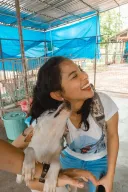Our favourite places to stay on this sleepy Cebu island.
My First Beach Clean-Up with REEF Free the Sea Movement: Thoughts & Things I Learned
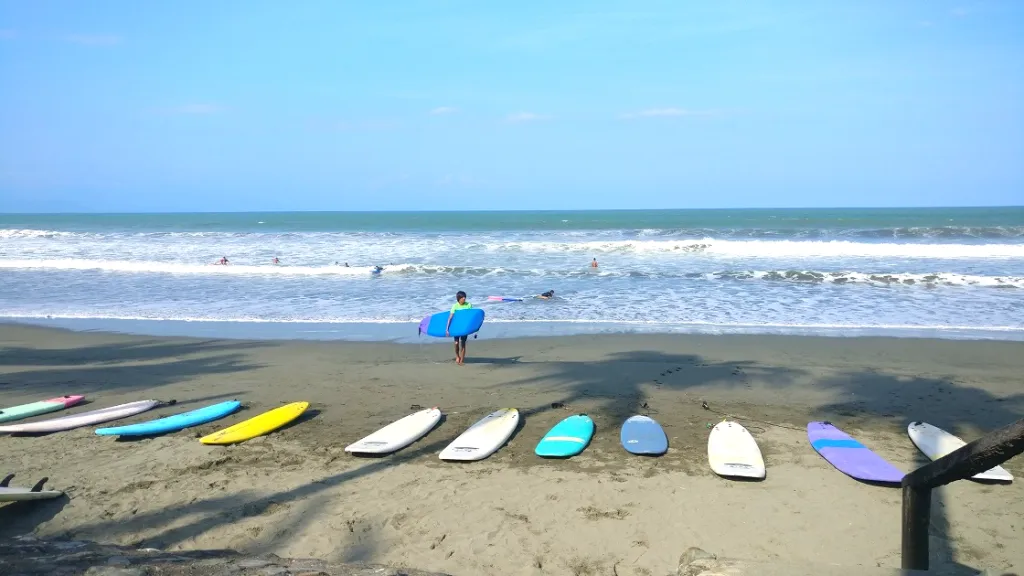
Golden warmth kissing my skin, sand in between my toes, the rhythmic crashing of the surf…and 50 kilograms of garbage?! That pretty much sums up my along the shores of Sabang in Baler, Aurora and boy was it an eye-opener.
By now you probably know to #SkipTheStraw to #SaveTheTurtles and other sea creatures. The closure of once party paradise Boracay also taught us a lesson or two about the devastating effects of overtourism.
Also read: The New Boracay: What to Expect When Returning to the Island Paradise
What our lifestyles (travels included) leave behind
But did you know that all humans of the Earth are responsible for the Great Pacific Garbage Patch, a disturbingly humongous collection of garbage caught in a trash vortex located in the Pacific Ocean? Here, you’ll find floating islands of marine debris — with some measuring up to 50 feet in length. It turns out, most of the trash swept by currents flowing along these waters are non-biodegradable waste, which makes it a more pressing issue. No shock there.
Also read: Pinoy Traveller Must-Haves: 16 Eco-Friendly Travel Items
Some large-scale efforts — like The Ocean Cleanup — have taken on the gargantuan task of ridding the seas of our filth, but beyond this, only a collective paradigm shift will pave the way for cleaner oceans.
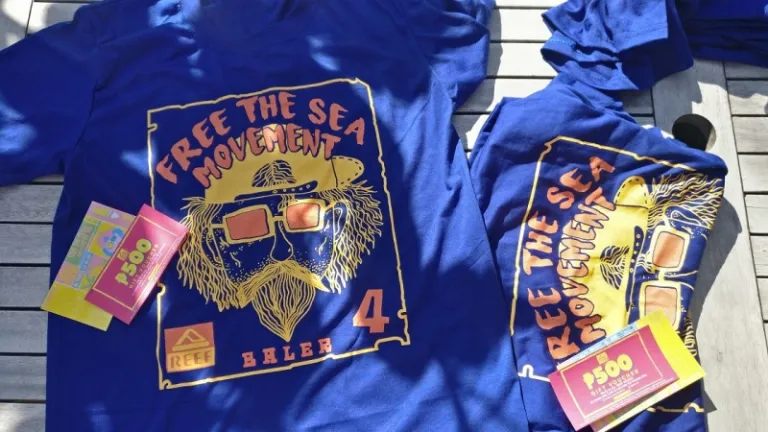
We learned all this and more at REEF’s Free the Sea Movement 4 (#FTSM4Baler) last 11 to 13 Oct 2019 in Baler. Personally, it was my . And in the spirit of creating a positive ripple (something I picked up at #FTSM4Baler as well!), I’d like to share some insights culled from the experience and the admirable folks who #MakeTravelHappen without sacrificing our environment’s health.
1. Sad but true: We are such mess-makers
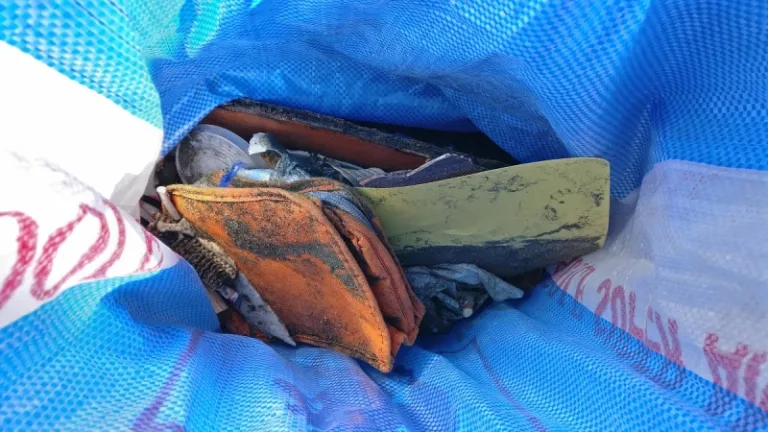
No, that’s not me being poetic. That’s me spilling the tea. Human beings are anything but consistent. If there’s one thing, though, that we’ve been doing without fail all these years, it’s making a mess of the natural world. We’ve led several species into population decline and even extinction. We pollute. You can’t deny we’re all victims of this buy-buy-buy culture that enables us to produce even more trash. So where does it all end and where do we even begin to clean our act up?
World Wildlife Fund (WWF) Philippines, a longstanding partner of Free the Sea Movement and one of its beneficiaries, told us it’s all about empowering individual action.
“They say whatever you do has an impact but sometimes it’s hard to keep at it when you don’t see the effects of your actions. That’s one of the biggest challenges, too, to keep reminding people that what you do actually matters,” said Kim Rodriguez, WWF PR & Campaigns Officer.
2. In cleaning up destinations, we also rehabilitate ourselves
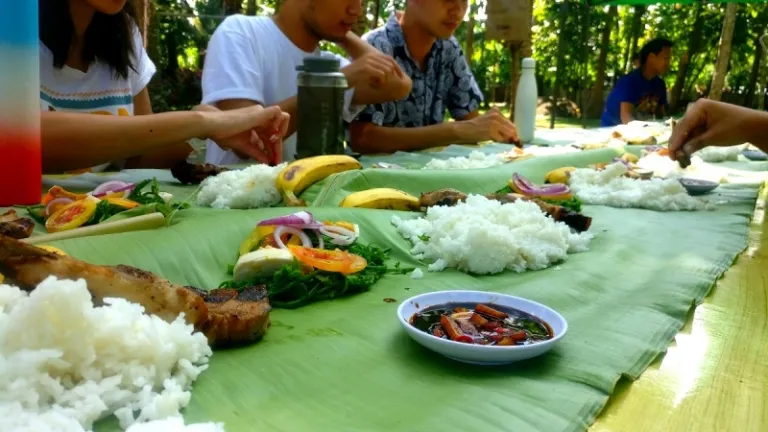
Which brings me to my next point. The answer to the questions above. So where do we begin? And will your action as an individual really matter in the big scheme of things?
First, begin with yourself. Believe me, the struggle is real…and chances are, it’s one that we all share. There are times when I think about impulse buys and the plastic products I failed to refuse on a weekly basis. My carbon footprint puts me to shame, too. While we were cleaning up the shore at Sabang, I suddenly felt so small — and guilty.
The heat became too apparent as we struggled to find the multitudes of microplastic littering the sand. To think that we only collected trash for a limited amount of time. Who cleans up the rest of the year? So I surf with all this trash around me while in the water? Why was this only my ? Is this the same plastic waste I produce back in Manila?
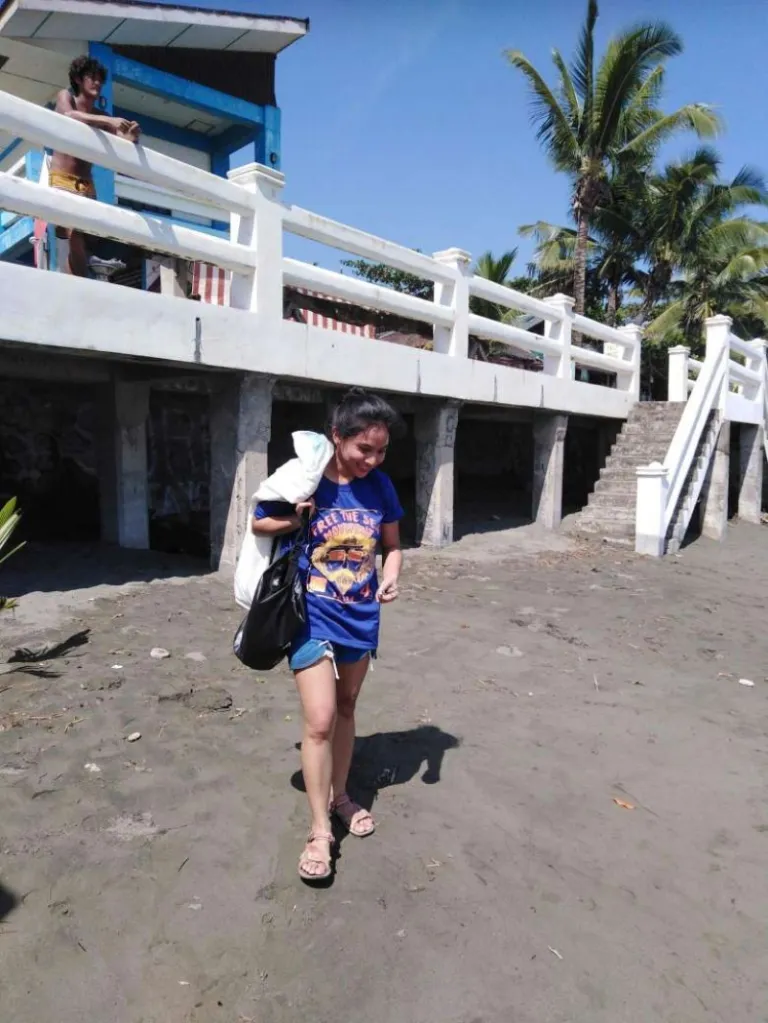
But after a chat with Kent Adrian Rebultan, WWF Philippines’ Assistant Manager for Brand & Innovative Partnerships, it seems that Free the Sea Movement was making me ask all the right questions.
“The thing about these kinds of events is that they target the younger crowd, the millennials or even younger. From the viewpoint of environmental conservation groups, it’s also about keeping up with the changing mindsets of individuals. So as much as possible we think of creative ways to promote our advocacies. So events like Free the Sea Movement, it’s very apt, timely, and effective. May music, may beach clean-up, may surfing. After all, one of our goals is to change mindsets and behaviours of individuals in the long run,” he said.
Confronting your smallness
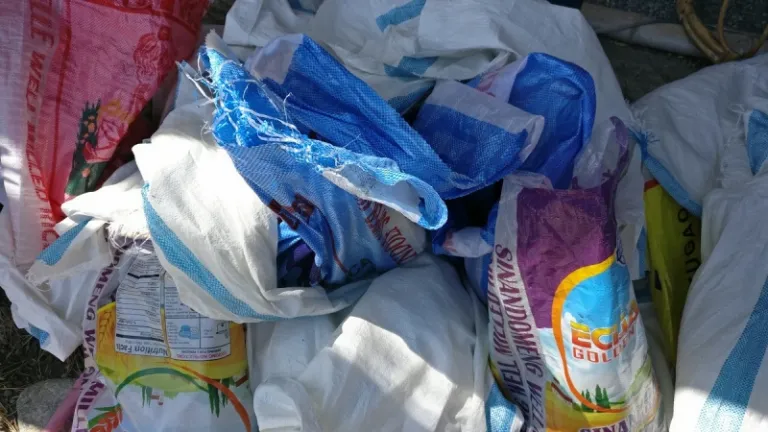
And as we made our way back to our base at Nalu Surf Camp, sacks of trash in tow, it suddenly dawned on me how little garbage I was able to collect compared to what was left out there. Judging from the look on my teammates’ faces, they felt the same. In fact, we didn’t notice that we had gone so far away from Nalu just to scour through the sand for more trash. There were cigarette butts, bottles, bits of tiny plastic, shampoo sachets, diapers, among other indistinguishable waste. One group even found an entire beach umbrella discarded on the shore.
To my surprise, though, in that limited amount of time, the participants of #FTSM4Baler collected 50kg of trash. That’s roughly equivalent to, well, one of me. My weight in trash, in just a portion of Sabang Beach, in under an hour of roaming the area. Imagine that.
So remember: Every little thing you do does matter, from your purchasing habits to how you clean up after yourself. If I didn’t collect trash that day, the final weigh-in could have had different results. I was part of that 50kg effort, and so were all the other participants of the #FTSM4Baler clean-up.
3. You’ll never see the sea the same way again
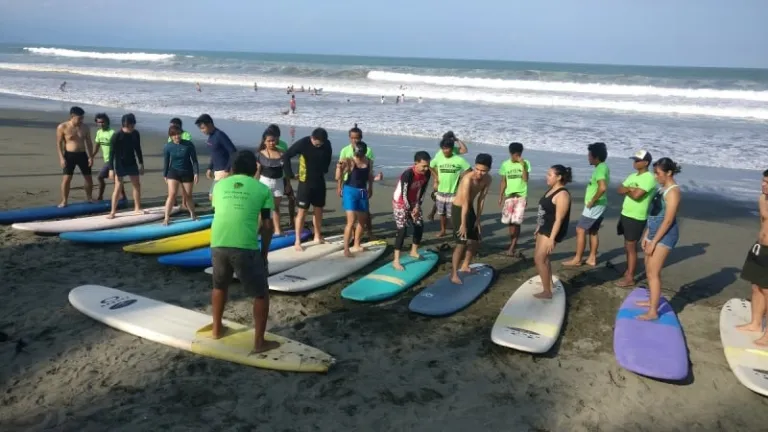
In relation to No. 2, I swear joining my changed the way I see the sea forever. It also helped that I was lucky enough to participate in the various workshops that Free the Sea Movement had in store for attendees. Although I make it a point to #LoveLocal and try my best to opt for eco-friendly personal care products whenever I can, the eco market opened new avenues for me and my friends to try. The eco talks line-up was also a great way to expand our environmental knowledge banks. Did you know the Philippines ranks third in the world’s top plastic polluters and that most of this waste ends up in the sea? To be shockingly blunt about it, Filipinos throw out HUNDREDS of MILLIONS of sachets and plastic bags on a DAILY basis.
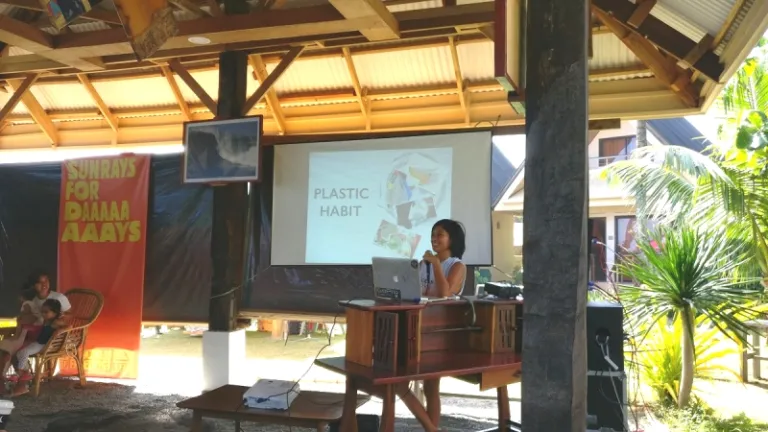
Interacting with locals and taking part in the surf camp also allowed me to gain a deeper understanding of life so near the shore.
“Of course, when we surf, ayaw namin ng maruming dagat. Gusto namin walang plastic, walang diapers habang nagsusurf ka, ‘cause sometimes it just goes to your face. It’s not a good thing. It’s also for future generations, for my kids. I don’t want them to swim in a dirty ocean by the time they can surf. It also has a lot to do with local awareness. There are still those who need reminding, ‘Huwag niyong iwan basura niyo riyan.’ Pero marami na ring mga surfers na pinupulot nila basura nila pag may nakikita sila. So at least we know our efforts work somehow,” explained Jovanne Faraon, Co-Founder & Chairperson of Ocean Care Movement (OCM), another partner and beneficiary of #FTSM4Baler.
Spreading awareness and advocating community collaboration

Although Jovanne noted the need for the spread of awareness even among locals, she was quick to point out the tourists’ role in the equation as well. Countless times, Jovanne has asked Baler-goers to realise that like other tourist destinations, the beach is also home to many. It’s not just somewhere you can surf over the weekend. This is also something that REEF advocates through Free the Sea Movement, in every surf town they partner with for the event.
“No matter where we go, as a brand, or as just tourists, never forget to respect the locals in the community. They are the ones who will still be there in the beaches we visit, it’s their home,” explained Marnelli Gaerlan, Marketing Head of REEF Philippines.

But joining my restored hope in community collaboration. It taught me that locals and tourists can work together in this cause. I personally experienced this while random kuyas approached us to hand over trash they picked up from the shore. They knew we were carrying out a clean-up and they were just hanging around, so they decided to help. How awesome is that?
4. Environmentalism is in, but it’s not just a fad, either

Another thing I noticed at my was how generally young the crowd was. I’m talking about university kids in their environmental org shirts who were in Baler to have fun, but clearly for a cause.
“It’s really helping make sustainability a cool thing. When we have events like these and we have the opportunity to talk about #AyokoNgPlastik, we see attendees of the event join the group so that’s something really cool. They listened, they heard what we were trying to say. They’re interested to find out what they can do,” added Kim from WWF.

But at the same time, groups like WWF and OCM utilise events like Free the Sea Movement to stress that sustainability and environmentalism aren’t just fads. They’re crucial frameworks that should permeate the way we go about living. They’re propellers of change that has been a long time coming.
“We also don’t want to say that environmentalism is a trend. We don’t want to think it’s just a trend. We’d like to think of it as a wave that’s just building up. Little by little, more and more people are getting into it, so hopefully it’s real change that’s happening throughout the years. Better late than never,” said Maria Alexandra Marmol, WWF Philippines’ Digital & Social Media Officer.
Take a not-so-subtle hint from climate activist Greta Thunberg’s battle cry: “We are in the beginning of a mass extinction.” What are you doing about it?
5. Today’s much-needed cliche: We’re all in this together

Last but not least, joining my only proved how saving the planet must involve anyone and everyone. It’s all human beings’ business — from private and public sectors, NGOs, and individuals such as you and me.
Case in point: OCM in Baler started with but one social media post from a single surfer.
“It started with social media. When I posted about the trash that’s been on Sabang Beach for a while during Amihan season. This is the season when the waves bring in all the sand and trash from the sea to the shore. No one was really doing anything about it and I posted it online. But then even people from here started saying, ‘Oo nga ‘no, bakit walang ginagawa?’,” Jovanne recounted.
Now they get to convert Baler-goers into eco-warriors, and collaborate with brands like REEF for events such as Free the Sea Movement. And for REEF, #FTSM4Baler came naturally since environmentalism is at the heart of the company.
Causing a ripple effect

“Reef is a surfing brand, and surfers are known to be eco-friendly so ever since even the materials Reef uses in production are more sustainable. We even have biodegradable sandals. Since it’s our core DNA, we want to promote responsible travel. We hope this is something other events can mirror, too. We’d like to start this with our brand,” explained Marnelli of REEF.

So here comes another concrete lesson from my : To spark real change, one must create a ripple effect. And to do this, all sectors must be represented. In the case of #FTSM4Baler, REEF partnered with NGOs like WWF Philippines and OCM to boost their environmental efforts. To ensure the event’s smooth sailing and safety, they also worked with the local government of Baler. Even establishments like Nalu Surf Camp, Bay’s Inn, Philippine Surfing Academy, Skwala, Dogtown Collective, Lil Warung Baler, and The Rotunda Café & Artspace pitched in to make #FTSM4Baler a success. Of course, without the participation of individuals ready to be catalysts for this cause, there wouldn’t even be a movement. So a pat on the back for the attendees as well, for getting down and dirty to clean the shores of Sabang.

“#BeachFreely is our rally cry. It’s inviting everyone to experience the fun, freedom, and spirit of the beach on their own terms. Hopefully stepping into Reef products will be like taking that feel with them back home. They’ll be reminded to keep on helping communities and protecting the environment everywhere they go,” noted Marnelli.
And so we end with a simple question. If REEF can make it happen with Free the Sea Movement, what’s stopping other brands and organisations from doing the same thing? That’s something to chew on until our next beach clean-up. Have you heard of other environmental events and causes we can support? Let us know or tag us in your photos @ph!
Special thanks to REEF Philippines and Creato Consultancy Inc. for inviting TripZilla Philippines to Free the Sea Movement in Baler, Aurora. For more information and updates on Free the Sea Movement, check out the Reef Philippines Facebook Page.
Published at
About Author
Alyosha Robillos
Subscribe our Newsletter
Get our weekly tips and travel news!
Recommended Articles
10 Bantayan Island Resorts, Hotels, and Rentals for Your Tropical Escape 10 Best Things to Do in Los Angeles Los Angeles is more than Hollywood stars. From hikes with killer views to beaches straight out of a rom-com, here are 10 must-do LA experiences for Filipino travellers or any wanderers in general!
10 Commandments for Responsible Travel Flexing Spread the good word!
10 Cutest Cafes in Japan That Are Totally One of a Kind From Pikachu snacks to Totoro cream puffs, here are 10 themed cafes in Japan that prove café hopping should be part of your travel itinerary.
10-day Christmas and New Year Japan Trip: Complete Travel Itinerary Celebrate Christmas and New Year in Japan with this 10-day holiday vacation itinerary packed with Tokyo lights, Kyoto charm, and Osaka adventures.
Latest Articles
Pangasinan Town Now Accepts Digital Payments in Markets and Transport No cash? No problem. Alcala, Pangasinan is officially in its digital era.
Pop Mart PH Opens Permanent Flagship Store in SM Megamall Labubu and Hirono have arrived! Check out holiday hours and event recaps here!
Chen of EXO Arcadia Concert Manila 2026: Tickets, Dates, and Perks Ticket info and fan perks
TLC Playpark: Free Christmas Destination in Taguig, Opening Hours, and Commute Guide Learn what to expect and how to get to TLC Playpark in Brgy. Lower Bicutan Taguig via C5 and MRT-3!
Free MRT and LRT Rides for LGBTQIA+ Members and Solo Parents Today Who rides free today

